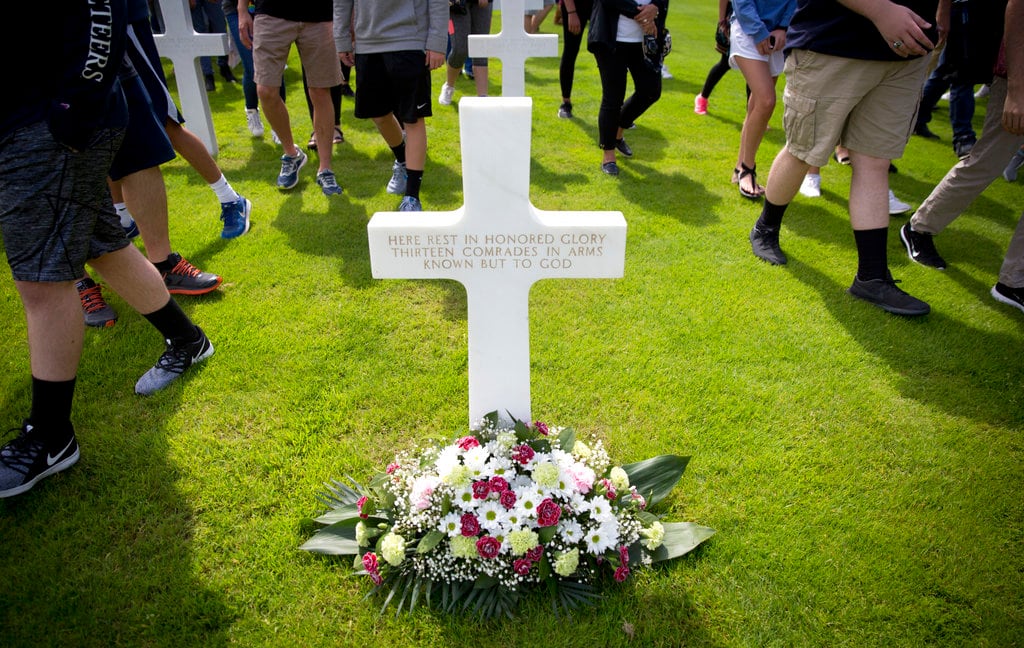Former Florida Gov. Jeb Bush hopes to thrust Veteran Affairs reform into the center of the 2016 presidential campaign — and position himself as the most veteran-friendly candidate — with the release of a new policy platform today.
The move comes almost six months before the first Republican primary, but also at a time when Bush and others in the large GOP field are struggling to gain the attention and support of likely voters.
Bush's VA reform plan, to be unveiled later today in advance of an appearance with Concerned Veterans for America in South Carolina tonight, includes expanding "choice" options for care outside the department without cutting funding for VA hospitals and medical staff.
Instead, he promises that extra funds can be found through "cutting excess administrators (not caregivers)" and eliminating "billions of dollars in waste, fraud, and abuse." That includes more competitive bidding for department contracts and firing poorly performing employees.
"Ample resources exist within the VA budget to improve the quality and scope of care," Bush's policy paper states. "In other government agencies, common-sense reforms have saved billions. The VA must get its house in order and send savings into improving veteran choice and veteran care."
He's also promising better online health care access systems for veterans, calling existing offerings too cumbersome and outdated.
VA officials have promised similar upgrades already, but Bush criticized the culture within the department that has "failed to adapt as quickly as it should to technological advances."
Bush is also endorsing plans for would-be veteran entrepreneurs to use GI Bill benefits to insure small business loans, a measure that has already been introduced in Congress and greeted with skepticism from some veterans groups.
He's promising enhanced focus on female veterans care and to roll back President Obama's plans to cut military end strength by up to 190,000 personnel over the next four years, arguing that plan hurts national security and will overwhelm VA services.
And Bush is pledging to use "the bully pulpit of a national election and his presidency to honor the service and character of America's veterans," saying that too often their sacrifice and continued contributions to society are overlooked.
The plans are ripe for scrutiny from critics but also likely praise from veterans groups simply for engaging the issues at a time when few other candidates have talked in depth about recent VA scandals and reforms.
Earlier this month, on the eve of the first GOP presidential debate, officials from Iraq and Afghanistan Veterans of America noted that only three of the top 10 Republican candidates had issued a policy platform that addressed veterans.
At that event, veterans were only mentioned once, in the final moments of a two-hour debate.
In July, Florida Sen. Marco Rubio appeared at a CVA event to discuss VA issues, and Texas Sen. Ted Cruz has committed to a similar town-hall event with the group later this month.
The biggest veterans issue in the campaign so far was July's attack by business mogul Donald Trump on Arizona Sen. John McCain, when he mocked his status as a war hero because he spent five-plus years as a prisoner of war in Vietnam.
The comments outraged veterans groups but failed to hurt Trump in national polls, where he continues to be the party's front-runner.
Leo covers Congress, Veterans Affairs and the White House for Military Times. He has covered Washington, D.C. since 2004, focusing on military personnel and veterans policies. His work has earned numerous honors, including a 2009 Polk award, a 2010 National Headliner Award, the IAVA Leadership in Journalism award and the VFW News Media award.





